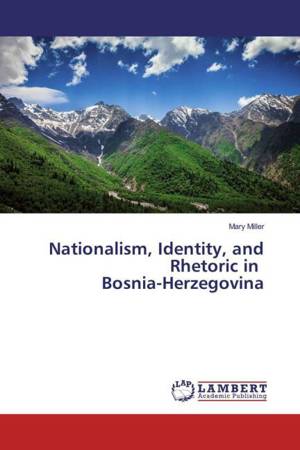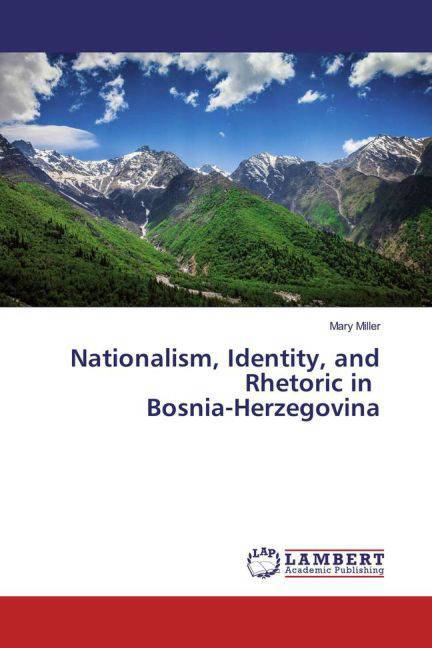
- Afhalen na 1 uur in een winkel met voorraad
- Gratis thuislevering in België vanaf € 30
- Ruim aanbod met 7 miljoen producten
- Afhalen na 1 uur in een winkel met voorraad
- Gratis thuislevering in België vanaf € 30
- Ruim aanbod met 7 miljoen producten
Zoeken
€ 39,45
+ 78 punten
Omschrijving
Ethnic divisions undermine statebuilding efforts in Bosnia-Herzegovina almost twenty years after the end of a war among the three main ethnic groups in the country. The political elites influence on how nationalism and identity is experienced in Bosnia-Herzegovina and offer reflections on how the country can or cannot be united. To what extent do the political elites at the level of the presidency articulate more narrow, ethnic themes or a broader national identity in pubic speeches? The rhetoric used by the political elites is explored to find occurrences of ethnic polarization or a framing of national identity. The study is informed by theories that account for the construction of identity and nationalism, in addition to theories around ethnic conflict and myth-making rhetoric. Speeches made by the presidents of Bosnia-Herzegovina are analyzed from 2004-2012 to find instances of specific word usage that encourages a unified Bosnian identity, promotes an ethnic identity, or attacks another ethnicity.
Specificaties
Betrokkenen
- Auteur(s):
- Uitgeverij:
Inhoud
- Aantal bladzijden:
- 100
- Taal:
- Engels
Eigenschappen
- Productcode (EAN):
- 9783659815904
- Verschijningsdatum:
- 28/12/2015
- Uitvoering:
- Paperback
- Afmetingen:
- 150 mm x 220 mm
- Gewicht:
- 159 g

Alleen bij Standaard Boekhandel
+ 78 punten op je klantenkaart van Standaard Boekhandel
Beoordelingen
We publiceren alleen reviews die voldoen aan de voorwaarden voor reviews. Bekijk onze voorwaarden voor reviews.











